
Transcendental films are those which go beyond traditional films by altering the viewer’s state of mind. Great directors such as Terrance Malick, Alejandro Jodorowsky, and Andrei Tarkovsky create profound filmic experiences by using film as a medium to express insight regarding fundamental aspects of human life.
These films challenge the viewer’s perceptions of reality, death, morality, and a host of other ideas that humanity takes for granted. In general, transcendental films inspire the viewer to think.
15. Szamanka (Andrzej Zulawski, 1996)
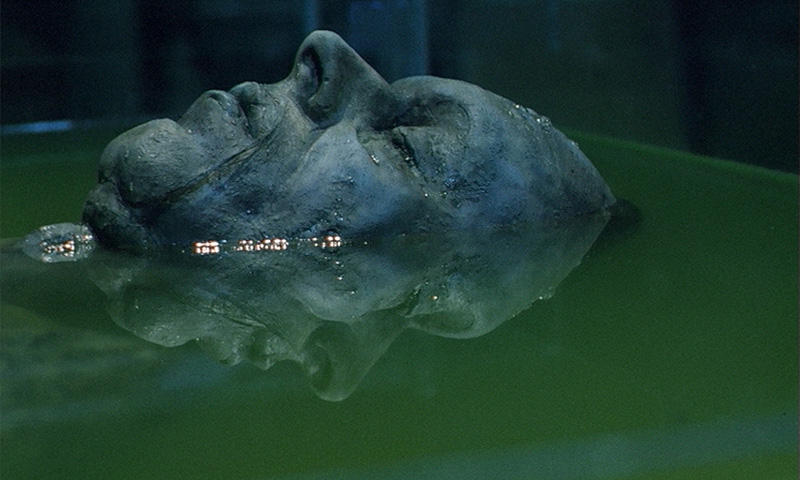
Written by Manuela Gretkowska, scandalous writer, feminist, and founder of the Polish Women’s Party, Szamanka investigates the connection between sex, the divine, and the subjugation of women in modern society.
The film takes place in Warsaw, where a student (Iwona Petry) whom we come to know only as the “Italian,” is searching for an apartment. On her search she meets Michal (Boguslaw Linda), an Anthropology professor. After Michal agrees to rent the Italian his brother’s old apartment, the two immediately engage in a violent act of sex.
The next day, during an excavation, Michal and his students discover the well preserved remains of a shaman that is more than 2,000 years old. While studying the shaman, the excavation team discovers that the back of his skull has been crushed. Michal speculates that the shaman’s skull was crushed so to release his spirit after his death.
Meanwhile, the Italian and Michal continue to engage in frenzied acts of sex which produce a transcendent experience for the two. Disgusted with the Italian’s unpredictable and compulsive behavior, Michal fails to tame her. Michal’s life begins to fall apart as he becomes obsessed with discovering the cause of the shaman’s death, and possessed by the idea that the Italian has shamanic powers.
A highly provocative film, Szamanka presents sex as a powerful practice which can be used as a means to attain spiritual fulfilment. By engaging in uninhibited sexual exploits, Michal and the Italian are able to transcend reality. But, as fulfilling as it may be, the powerful interaction between sex and spirituality could be destructive.
14. Uncle Boonmee Who Can Recall His Past Lives (Apitchatpong Weerasethakul, 2010)
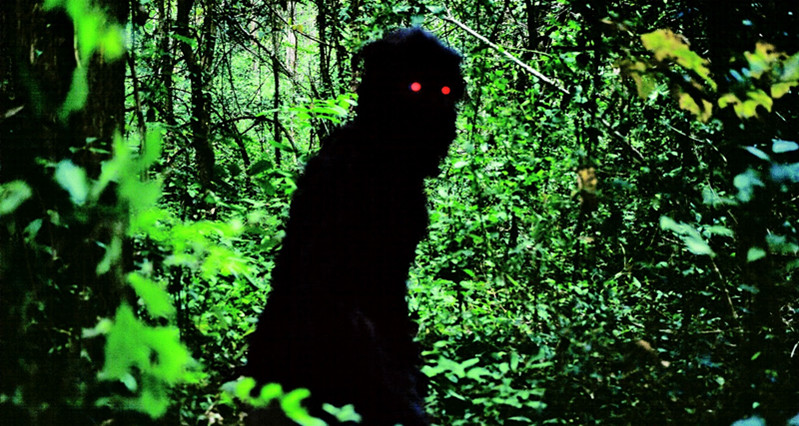
Winner of the 2010 Cannes Palm d’Or, Uncle Boonmee (written, directed, and produced by Apitchatpong Weerasethakul) is a lyrical meditation on karma, transformation, reincarnation, and death.
Boonmee is terminally ill. Accompanied by his sister-in- law and his nephew, he spends his last days in the Thai country side recounting his past lives. He is visited by supernatural beings, including his deceased wife, and his lost son who has transformed into an ape-like creature. Boonmee contemplates the karmic cause of his illness and acknowledges the bad deeds that he has committed in his current life.
Uncle Boonmee examines various Buddhist themes, such as karma, reincarnation, and death. Apitchatpong’s focus on landscape and the subtleties of human interaction enchants the viewer, as he guides us on a poignant journey through Boonmee’s last days.
13. Enter the Void (Gaspar Noe, 2009)

Loosely based on the Tibetan Book of the Dead, Enter the Void depicts the intermediary stage between life and rebirth. Drawing from experimental cinema and Gaspar Noe’s own psychedelic drug experiences, the film uses stunning computer generated imagery, while utilizing a first person camera perspective to produce a unique out of body experience for the viewer.
Oscar (Nathaniel Brown) is living in Tokyo, where he has recently reunited with his younger sister Linda (Paz De La Cruz). Oscar and Linda were left orphans and separated as children, due to a deadly car accident which resulted in their parents’ deaths. Oscar sells drugs in order to support himself, against the advice of his friend Alex (Cyril Roy), who has lent Oscar a copy of the Tibetan Book of the Dead. One evening, after ingesting LSD and smoking DMT,
Oscar meets up with Alex. Oscar asks Alex to accompany him on a visit to The Void, a local night club, were Oscar is going to make a drug deal. Oscar enters The Void and meets up with Victor (Olly Alexander). It soon becomes apparent that Oscar has been set up. Fleeing from the police, Oscar locks himself in a bathroom where he is shot dead.
Oscar’s soul then leaves his body and hovers over Tokyo. On his spiritual journey, Oscar observes the repercussions of his death. Linda is devastated and Victor is tormented with guilt. Oscar remembers a promise that he made to Linda, prompting him find a way to make things right.
Enter the Void tells the story of a man, who after death, refuses to leave his promises unfulfilled. Hovering over Tokyo, Oscar sees the consequences that his death has had on those he loves, and he is confronted with the promises which he has failed to keep. Gaspar Noe brilliantly utilizes the first person perspective, stunning visuals, and exceptionally effective editing to bring the audience along Oscar’s spiritual journey through the afterlife.
12. Altered States (Ken Russell, 1980)
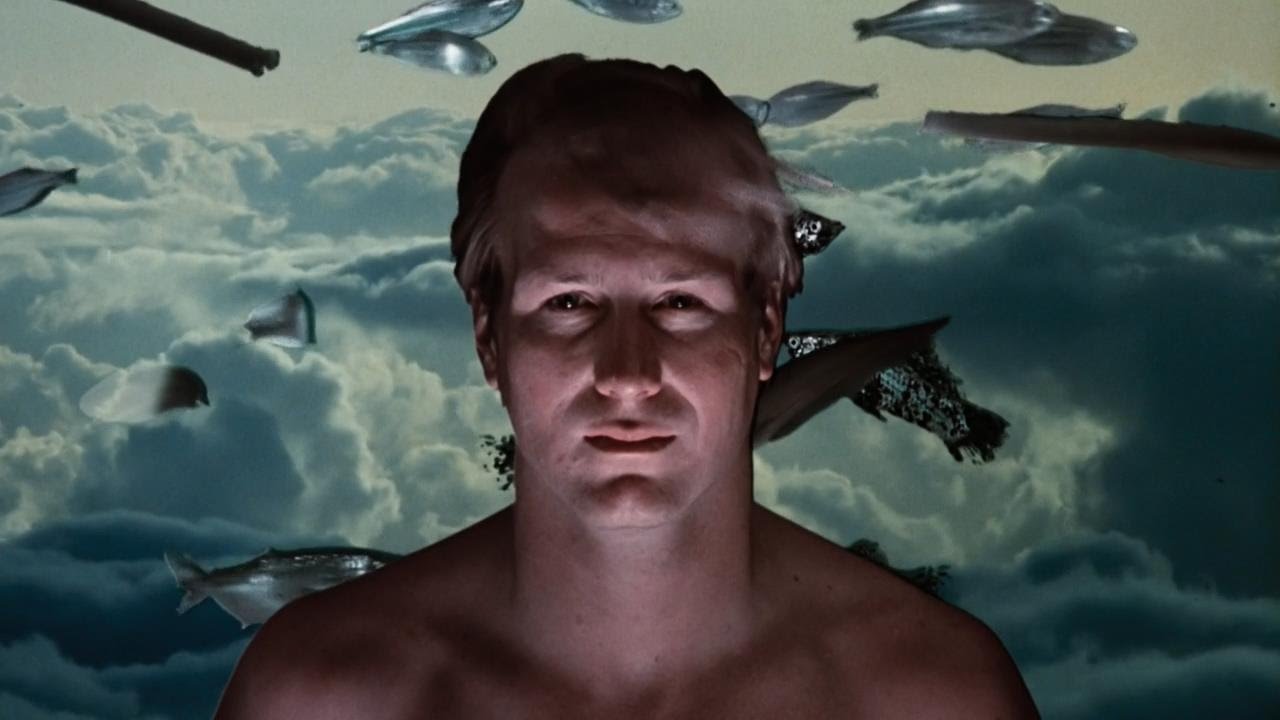
Written by the acclaimed Paddy Chayefsky, Altered States tells the story of a man obsessed with investigating uncharted regions of the mind and experiencing altered states of consciousness. Ken Russell’s film explores mankind’s determination to unlock the secrets of his origins.
Edward Jessup (William Hurt) is a professor of abnormal psychology whose studies focus on schizophrenia. Edward is convinced that other states of consciousness, such as those experienced by his patients, are as real as normal waking states. Using a floatation tank, Edward begins to experiment with sensory deprivation as a means to self-induce altered states of mind. His passion becomes an obsession, straining his relationship with his wife and kids.
Edward embarks on a journey to visit an isolated tribe in Mexico, whom he is informed, practice a ritualistic consumption of a hallucinogenic drug which induces a common experience amongst participants. Upon his arrival, the tribe leader grants Edward permission to partake in the ritual. He is told that the drug he will be taking awakens memories of the unborn self. Edward experiences powerful and disturbing hallucinations.
The tribe leader allows Edward to keep what is left over of the drug. He then begins to experiment by ingesting the drug while using an isolation tank. During experimental sessions, Edward begins to experience disturbing psychological and physiological devolution. Edward’s team becomes concerned, but he refuses to stop his research.
Altered states criticizes man’s obsessive exploration of the unknown. Russell uses powerful, vivid imagery to convey the intrigue and terror of uncharted exploration, but his question is clear: is the intrigue worth the danger?
11. The Master (Paul Thomas Anderson, 2012)
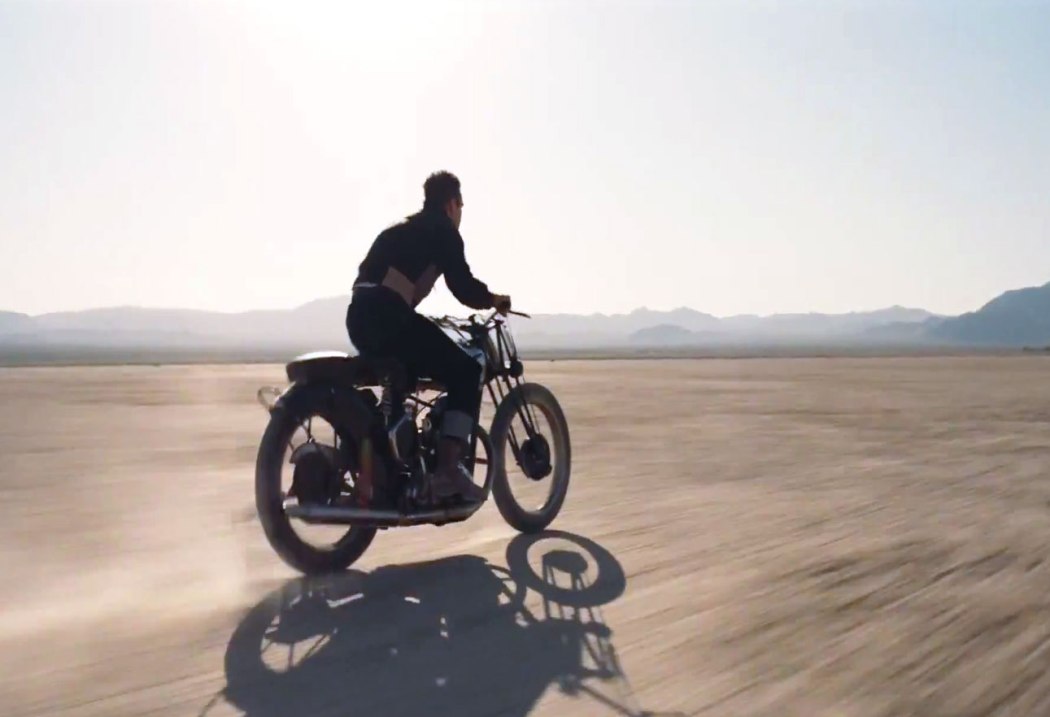
Loosely based on the life of L. Ron Hubbard and the practice of Scientology, The Master depicts two men and their struggle to find meaning, and exposes the role that human connection can play in finding it.
Freddie Quell (Joaquin Phoenix) is an Alcoholic WWII veteran with a troubled past. Unable to adjust to post war society, he drifts from job to job. After being accused of poisoning a migrant worker with moonshine at a cabbage farm where he works, Freddie drunkenly flees and sneaks on board a yacht. Freddie is awoken by a woman who leads him to Lancaster Dodd (Philip Seymour Hoffman), the leader of a budding cult referred to as “The Cause.”
Dodd attempts to learn about Freddie’s past and his reasons for boarding the yacht, but Freddie gives no answers. Dodd confesses that Freddie seems very familiar to him. Freddie is invited to stay with “The Cause.”
After celebrating his daughter’s marriage, Dodd subjects Freddie to “Processing,” a bizarre psychological exercise which involves a sequence of disturbing psychological questions aimed at reducing the trauma associated with them. The two quickly strike a friendship. Freddie is intrigued by Dodd’s flamboyant demeanor and outlandish philosophy, while Dodd is fascinated with Freddie’s unique personality.
The Master reveals the important roles that people play in each other’s search for meaning. Freddie finds hope in his friendship with Dodd, believing that Dodd may hold the cure to his ailments and the secret to a better life. Dodd sees his friendship with Freddie as an opportunity to prove the validity of his work, thus reaffirming his grandiose perception of himself.
10. Aguirre, the Wrath of God (Werner Herzog, 1972)
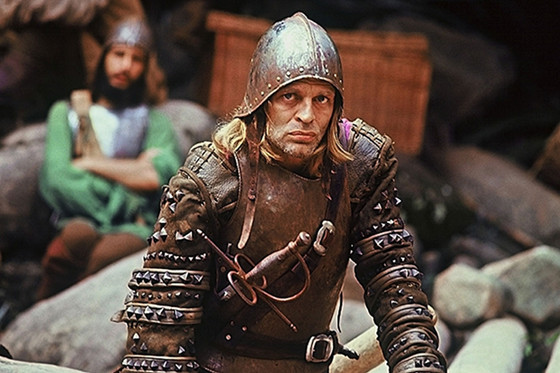
Herzog’s film depicts man’s idealism as volatile and detrimental, as he tells the story of a megalomaniac possessed with the desire to conquer.
Set in 1560, the film follows a Spanish expedition in search of the fabled land of El Dorado. Lacking in both supplies and knowledge of the surrounding area, the expedition in unable to continue until further information can be obtained. Pizarro, the leader of the expedition, orders a group of forty men on a mission to travel down the river by raft in search of food and information.
Of the forty men, Pizarro places Pedro De Ursua (Ruy Guerra) first in command and Lope De Aguirre (Klaus Kinski) second in command. If the group does not return in one week’s time, the rest of the party will head back whence they came. The crew’s journey proves to be perilous. While travelling down the rapids one of the four rafts becomes caught in a whirlpool. Unable to be freed, the raft and its passengers are left behind.
The next morning the rafts crew is found dead, with two missing. Ursua instructs his group to recover the bodies in order to give them a proper burial. Unwilling to allow Ursua’s decision to jeopardize the expedition, Aguirre signals one of the men to fire the cannon and destroy the raft.
The two throw the bodies in the water. Ursua decides that the troop cannot continue and must return to Pizarro’s group. Aguirre reveals that he has plans of his own as he sets his scheme in motion to become Ruler of a new empire.
Aguirre, the Wrath of God criticizes man’s idealism. Through Aguirre and his treacherous self-aggrandizement, Herzog depicts man’s futile quest for power. Once Aguirre is granted power he becomes delusional. Unable to perceive the limits of his own power, Aguirre is unprepared for dangers that lie in the Amazon jungle.
9. Embrace of the Serpent (Ciro Guerra, 2015)
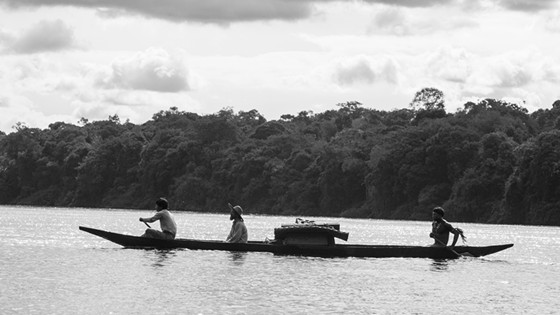
Loosely inspired by the written accounts of German Ethnologist Theodor Koch-Grunberg, and American Ethnobotanist Richard Evans Schultes, Embrace of the Serpent tells the story of Karamakate, an Amazonian shaman struggling to come to terms with the extinction of his people. After being approached by a German explorer, Karamkate is inspired to realize his purpose. The film offers a critique on the destruction of indigenous peoples and the exploitation of natural resources at the hands of white invaders.
Taking place during the early 1900’s, a young shaman named Karamakate (Nilbio Torres) is approached by two men traveling by boat, a German explorer named Theo (Jan Bijvoet), and his local guide, Manduca (Migual Dionisio Ramos). Gravely ill, Theo is in search of a sacred and rare plant called Yakruna, which he is told can cure him of his sickness.
Although Karamakate is the only one who can find the widely sought after plant, he holds reservations against helping one of the white men responsible for the extinction of his people. After revealing that he can help find other survivors of his tribe, Karamakate agrees to assist Theo. The Three embark on a journey deep into the Amazon. On their voyage, Karamakate struggles to enlighten Theo, criticizing white man’s reliance on material possessions, his exploitation of nature, and his lack of spirituality.
In a parallel story, a much older Karamakate is approached by a lone traveler by the name of Evan (Brionne Davis). Evan claims that he has never been able to dream, neither awake nor asleep, not even by ingesting powerful herbs given to him by shamans. He has been told that only the sacred plant Yakruna can help him.
Karamakate explains that he has lost his connection with nature and cannot remember how to find Yakruna, but that he will accompany Evan on his search. While looking through Evan’s luggage, he finds a book written by Theo, and begins to recover his link with nature. Karamakate insists that Evan is not one, but two souls, and that he must find his own way to the Yakruna.
Using lush black and white photography, mythical undertones, and evocative sound design, Embrace of the Serpent hypnotizes and transports its audience to a mysterious world, both beautiful and frightening.
Guerra addresses the horrors committed to the indigenous people of the Amazon at the hands of white invaders, criticizing modern man’s exploitation of nature, and lack of spirituality. Yet amid all the darkness, Guerra expresses hope in the transmission of the Amazonian legacy. As long as there are those willing to learn, a connection between man and nature can be re-established.